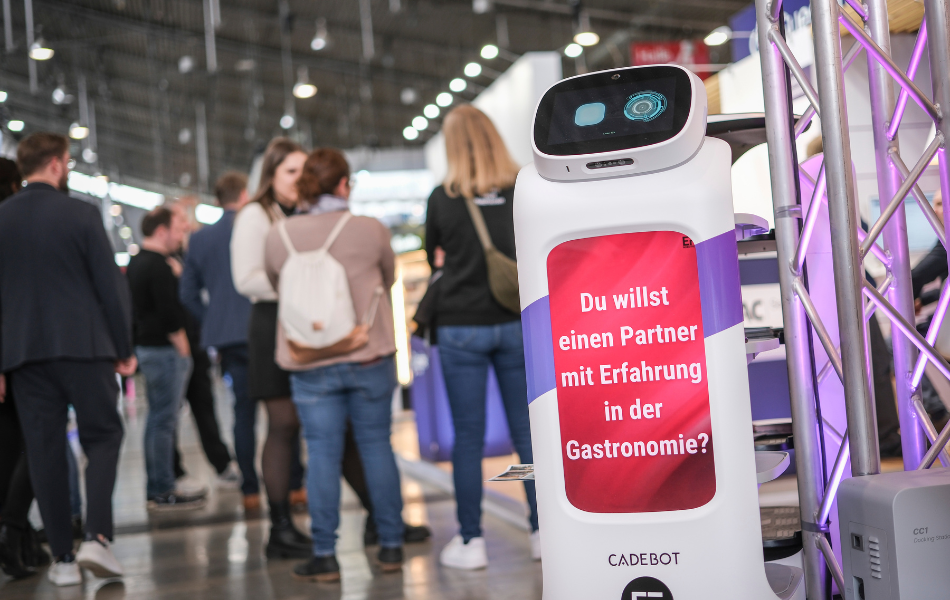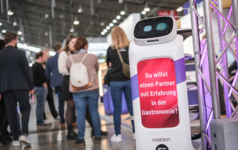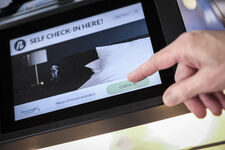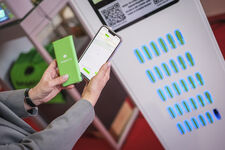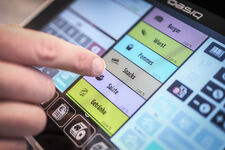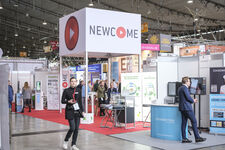Smart served: Artificial intelligence in the gastronomy sector
Digital expert Stefanie Boeck on the (im)possibilities of Artificial Intelligence in gastronomy and beyond.
Stefanie Boeck, when it comes to AI, people tend to speak of its historical impact. What is your take on this?
Stefanie Boeck: The change is a milestone. Thanks to advanced medical technology and quantum computing, it will soon be possible to carry out medical checks on a daily basis from our own homes. There will be automatic monitoring for nutritional deficiencies or other abnormalities during our morning ablutions. Food printing is already common practice in many university canteens and these foods will soon be automatically adapted to medical requirements. Food and supplements will merge, and many illnesses will be prevented before they can cause serious damage.
And what is the specific role that AI will play in the future of gastronomy?
I see two phases: we are already in the middle of the first phase, with the incorporation of robots in the areas of service and kitchen. Some companies have already handed over responsibility for inventory or invoicing entirely to AI. We will soon see robots and artificial intelligence joining forces to revolutionise the kitchen.
How would that work exactly?
The robots automate work steps and AI is responsible for their immediate analysis and adjustment. For example, by using image recognition to determine degrees of cooking or adapting dishes to accommodate guest allergies or preferences. The kitchen environment is becoming more personal and, best of all, this is freeing up human resources. Service personnel have more time to cater to the guests, there is less hectic in the kitchen, and chefs can invest more time and effort into the creative element of their profession.
And the second phase?
AI will no longer simply optimise the technology of the host, but also the guests. Health apps that are tuned in to daily nutritional requirements will be able to order food before the wearer even realises they are hungry. The robot kitchen – or the 3D home food printer – will prepare the meals independently, which, thanks to an automated feedback loop, will be more personal and of better quality than ever before.
How do you rate this development?
The gastronomy sector can expect to benefit from even greater freedom and variety thanks to the incorporation of this technology. And it will also help to fill the gap created by personnel shortages. The talented chef with his extravagant creations, the wine connoisseur with her wealth of information and the host who manages to make everyone feel welcome – these people will always play a significant role. It will just be the case that not every business will need the services of such experts.
If this technology is expected to bring so much relief – why has it taken the hospitality sector so long to embrace it?
The hotel and gastronomy sectors are latecomers to the digital revolution because, for so long, they were under no pressure to think more innovatively. The pandemic quickly changed this. We are now at the stage that hotels are increasingly looking at options to merge hospitality and gastronomy – not just to be able to deliver the optimal guest experience, but to also lower costs through constructive collaboration and automation. In my opinion, this breaking out of the silo mentality is an incredibly positive development.
Who is leading this race and how can the gastronomy and hotel sectors mutually support each other, in order to benefit as much as possible from digital developments?
When it comes to the use of software for business operations, I see the hotel sector as being slightly ahead. There also appears to be a widespread use of digital tools here, such as online marketing or comparison portals. On the other hand, I think the gastronomy sector is leading the way when it comes to on-site guest experience. There seems to be a greater focus here, perhaps due to the nature of the business. In hotels, there is little interaction once the guest has retired to their room. Although, the use of software is increasingly compensating for this disadvantage. The more intuitive the digital services for guests, the greater their overall satisfaction.
Which industries are currently setting a good example for the hospitality sector?
There’s the digital approach of the media industry and the automotive industry has its robotics, and yet I would say primarily eCommerce. Here, we’re seeing the evaluation of customer behaviour and preferences, the use of comparison portals and a tailored selection of products or services that “may also be of interest to you”. Which brings us back to the keyword “personalisation”. One of the most important tools for success in the future will be knowing what guests want before they express it or even know it themselves.
How do you see this playing out? Will there be room in the future for the old and established restaurants as we know them today, free from any AI whatsoever?
The craft sectors, in my view, whether it be furniture, fashion, automotive or gastronomy, will actually see a marked improvement. For me, it’s like comparing IKEA and skilled carpentry. If I want something quick and affordable, I’ll go to IKEA. If I’m looking for more tailored advice, perhaps unique pieces of furniture or superb craftsmanship, then I’ll be using the services of a tradesman. Both approaches can be justified. And this will also be the case in gastronomy.
back to overview